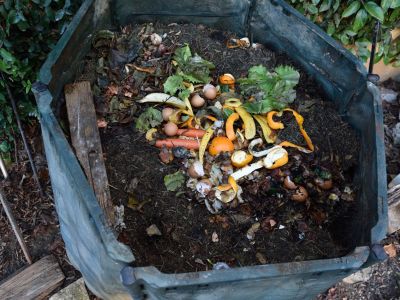Using Compost in Gardens
If you want to build healthy soil to develop permanent fertility in the garden, using compost is a good idea. Mixing in compost improves the soil structure, which allows the soil to hold more moisture. It also adds nutrients to the soil. Unlike fertilizer, compost improves the soil nutrients at a slow, steady pace. It fosters microbial activity in the soil as well, which improves nutrient uptake.
How Much Compost Do I Need?
While compost is good for your garden soil, you’ll want to use it in moderation. As a general rule, adding 1 to 3 inches (2.5-8 cm.) of compost to vegetable gardens or flower beds is sufficient. This should be blended into the underlying soil. That isn’t always the case though. You may ask yourself, “How much compost is enough?” The proper amount of compost for plants in your backyard depends on several factors such as what you want the compost to accomplish. If you are adding compost to improve the level of nutrients in the soil, you should get a soil test to determine which nutrients, if any, it needs. You might also run a nutrient check of the compost since different types of composted detritus will contain different levels of nitrogen and other nutrients. For example, lawn clippings will have less nitrogen than fruit peels and eggshells.
Can You Have Too Much Compost?
If you are considering adding compost to your soil in order to improve the soil structure, first touch your current soil to help you determine its texture. If it is very sandy, adding compost is great. Compost will improve the texture and helps sandy soil retain moisture and build up the nutrient supply. Can you have too much compost if the present soil is clay? Yes, you can. Clay soils usually have poor drainage and are poorly drained. Using compost in gardens with this soil type makes the drainage issue worse for the same reason it helps soils stay moist.
